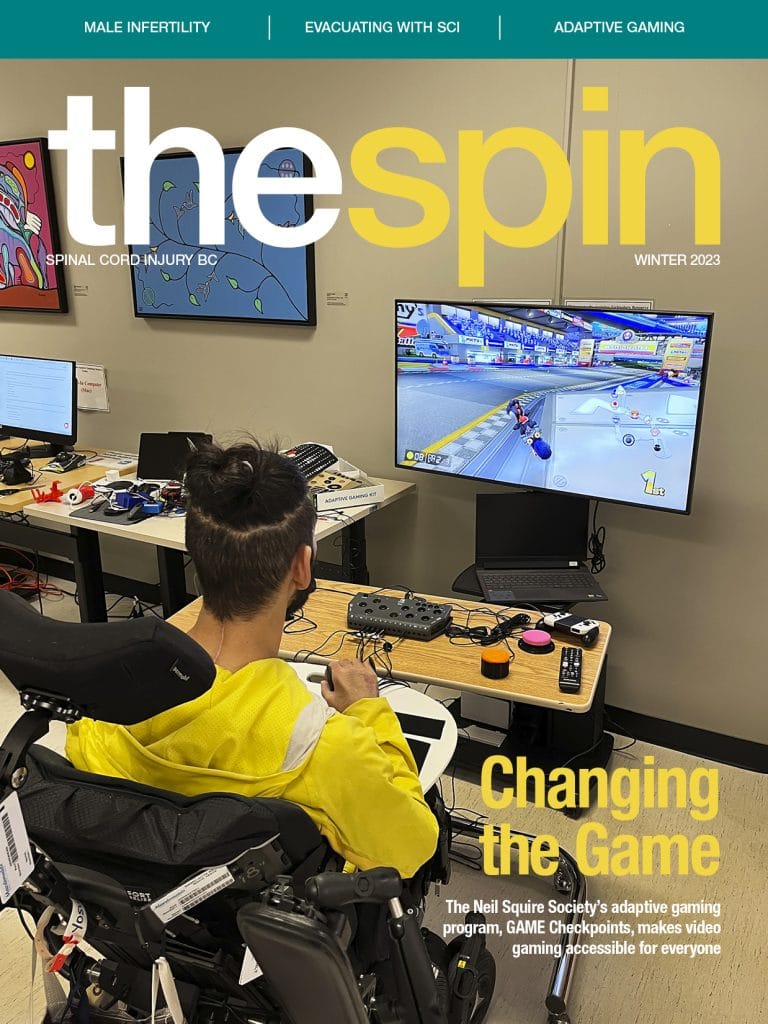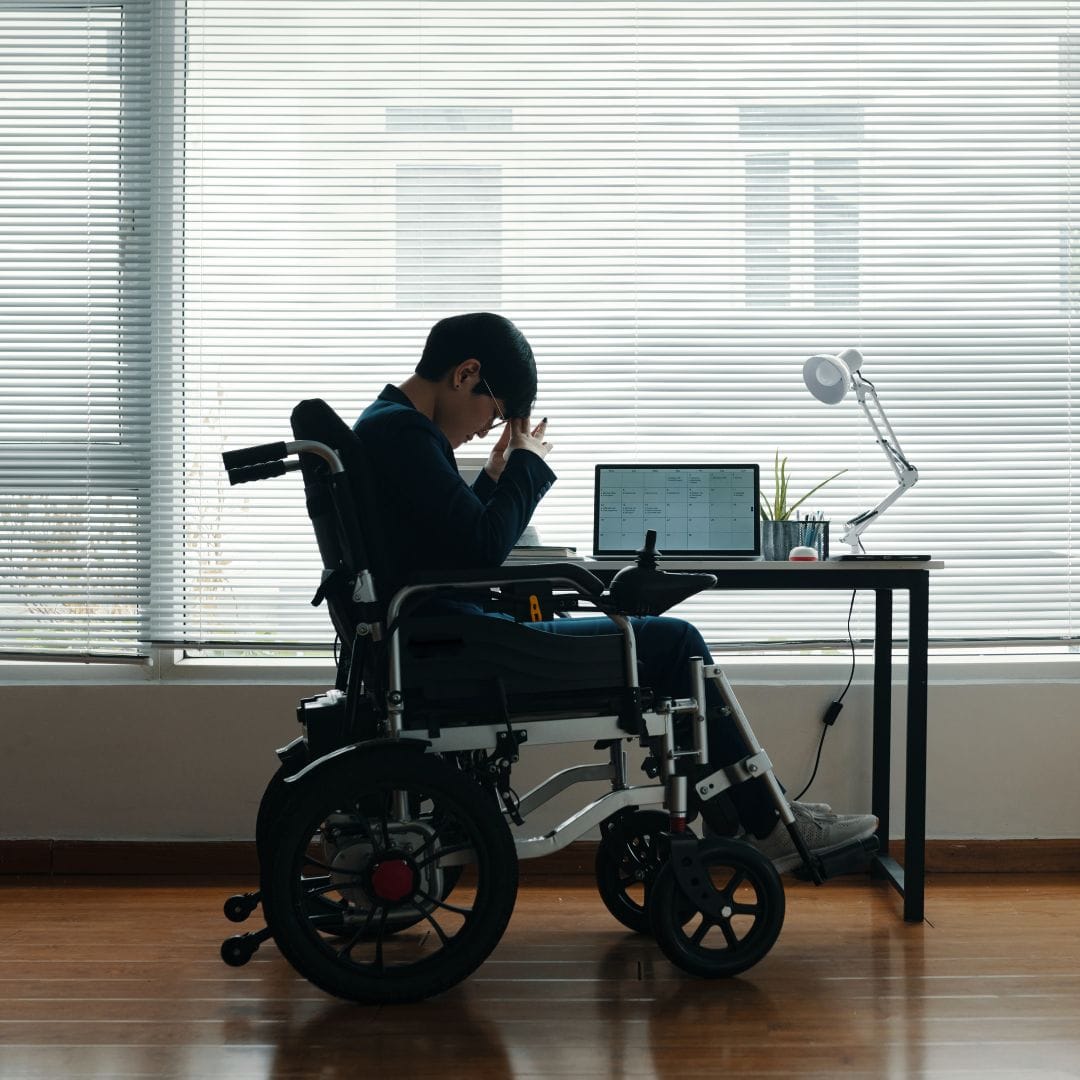
Back in 2014, we had Dr. Jeremy Road respond to the following question from John in Surrey: “It seems like I haven’t had a good night’s sleep since my injury. My wife says my snoring is intolerable, and that I sometimes seem to stop breathing while asleep. Is it possible I have sleep apnea? What should I do about it?”
To update this 2014 Spin Doctor article, we turned to Dr. Aditi Shah, MD FRCPC, a Respirologist specializing in sleep and neuromuscular disease at Vancouver General Hospital and the new Medical Advisor for the Provincial Respiratory Outreach Program (PROP).
Symptoms of daytime sleepiness, poor sleep quality, inattention, periods of not breathing, and waking up in the night suggest sleep apnea. These symptoms could have other causes, but their presence in someone with SCI is enough to warrant further assessment, especially since as many as 80 percent of people with SCI experience sleep apnea. It is particularly common among people with a cervical SCI and those who have co-existing conditions such as brain injury or use of medications that impact breathing control.

Your first step is to speak to your primary care doctor or nurse practitioner, who will in turn refer you to a specialist qualified to diagnose and treat respiratory sleep disorders, including sleep apnea. Your referral will include an overnight stay in a hospital or sleep clinic, where you’ll be assessed for sleep apnea using polysomnography, a test that records specific physical activities while you sleep. Your “sleepover” will be conducted in a natural, comfortable setting. If you’re diagnosed with sleep apnea, the goal of treatment is to restore natural breathing throughout the night, resulting in a return of daytime energy and alertness. Treatment depends on the type of sleep apnea you are diagnosed with.
If you’re diagnosed with obstructive sleep apnea (OSA) and weight is a factor, losing some weight can sometimes be enough to reduce apnea. As part of your body’s weight reduction, elimination of excess adipose tissue around the upper airway makes it that much easier to breathe while you’re asleep. Avoidance of medications and drugs, including alcohol, that relax the muscles in the upper airway can also be a simple solution. Failing that, an oral appliance custom-made by a specialist dentist can often reduce or eliminate mild to moderate OSA. These devices move the lower jaw forward during sleep, which prevents the tongue from falling into the airway.
For more severe cases of OSA the treatment is CPAP, or continuous positive airway pressure. With CPAP, a soft mask is worn during sleep, with positive air pressure delivered by a small, quiet machine. You may also be diagnosed with central sleep apnea (CSA), or a combination of CSA and OSA. People with quadriplegia are at an increased risk for this type of apnea. There are a variety of bilevel positive airway pressure (or BiPAP) machines for treating this combination of OSA and CSA. These machines, which are more sophisticated (and more expensive) than CPAP, are designed to minimize hypoventilation, which can occur when breathing during sleep is not deep or regular enough. Hypoventilation is associated with an elevation of carbon dioxide levels in the blood, which can produce symptoms of headache and sleepiness in the morning. Like CPAP, BiPAP involves a mask and a machine to maintain air pressure. The “bilevel” component refers to the fact that there are two alternating pressures—higher pressure when you breathe in, and slightly lower pressure that allows you to breathe out.
In BC, sleep apnea assessment is covered by BC MSP. For people with respiratory muscle weakness (common for those with cervical SCI) who use BiPAP, the Provincial Respiratory Outreach Program (PROP) provides supplies and support free of charge. Unfortunately, CPAP is not covered by MSP, except for those with PWD medical coverage. Because sleep apnea can be a serious condition, it is important to get assessed. The good news is, getting a diagnosis and starting treatment can improve cognitive symptoms, sleep/fatigue, and overall quality of life.
Aging with SCI Peer Support Specialist Duncan Campbell adds: For me, sleep apnea was a sneak attack with symptoms I couldn’t detect, like snoring and talking in my sleep. I dismissed other symptoms like poor sleep and my daily nap as normal signs of aging. Even after I was tested for sleep apnea it didn’t seem that important. Meanwhile, it decreased oxygen to my brain and my cognitive abilities, making it harder to recognize the symptoms and pay attention. It was only when sleep apnea and pneumonia combined put me in hospital that I understood how important it needed to be. If you have any of these symptoms, it’s worth getting tested for sleep apnea. Best of all, it’s treatable and can keep the problem from becoming much worse
This article was originally published in the Winter 2023 issue of The Spin. Read more stories from this issue, including:
- Adaptive gaming
- A new treatment for male infertility
- Peers’ evacuation experiences
And more!




